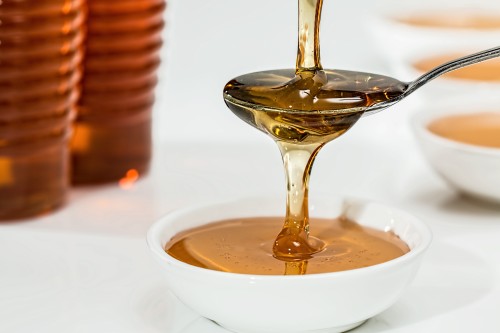Introduction
In the world of honey, Mānuka honey stands out as a true marvel of nature. With its unique properties and extraordinary benefits, this golden elixir has gained worldwide recognition for its exceptional healing and nutritional qualities. Native to New Zealand and Australia, Mānuka has been treasured for centuries by indigenous communities, and today, it enjoys a well-deserved reputation as a superfood and natural remedy. In this article, we will explore the fascinating world of Mānuka, its origins, production process, and the myriad ways it can benefit your health and well-being.
The Origins of Mānuka
Mānuka derives its name from the Mānuka tree (Leptospermum scoparium), a native plant found in New Zealand and parts of Australia. The Mānuka tree has small, aromatic leaves and produces delicate white or pink flowers. What makes this tree so special is its nectar, which bees collect to create the unique Mānuka.
The Mānuka tree’s nectar is exceptionally rich in unique bioactive compounds, including methylglyoxal (MGO), dihydroxyacetone (DHA), and leptosperin. These compounds are responsible for the honey’s distinctive flavor, texture, and, most importantly, its remarkable health benefits.
Production Process
Producing Mānuka honey is an intricate process that involves both the Mānuka tree and diligent beekeeping practices:
Bee Foraging: Bees collect nectar from the Mānuka tree’s flowers.
Enzymatic Conversion: Inside the hive, enzymes transform the nectar into honey.
Storage: The honey is then stored in honeycomb cells.
Maturation: During maturation, the unique Mānuka compounds develop and intensify in the honey.
Harvesting: Beekeepers extract the honey from the hive.
Grading: Mānuka is graded based on its MGO content, with higher levels indicating greater potency.
Health Benefits of Mānuka
Antibacterial Properties: One of Mānuka most celebrated attributes is its natural antibacterial activity, primarily attributed to MGO. This property makes it effective in treating wounds, cuts, and burns by preventing infection and promoting faster healing.
Immune Support: Mānuka is rich in antioxidants and vitamins, which can help boost the immune system. Consuming it regularly may reduce the risk of common illnesses and infections.
Digestive Health: The antibacterial properties of Mānuka honey can also be beneficial for digestive health. It may help soothe conditions like acid reflux, gastritis, and irritable bowel syndrome.
Skin Care: Mānuka is a popular ingredient in skincare products due to its ability to moisturize, soothe, and rejuvenate the skin. It can be used in face masks, creams, and even as a natural acne remedy.
Oral Health: Mānuka antibacterial properties extend to oral health. It can be used as a mouthwash or added to toothpaste to combat bad breath and promote healthy gums.
Sore Throat Relief: When taken orally or mixed with warm water, Mānuka can provide relief from sore throats and coughs. Its soothing properties help reduce irritation and inflammation.
Allergy Alleviation: Some people believe that consuming locally sourced Mānuka may help reduce allergy symptoms. However, scientific evidence on this claim is limited.
Energy Boost: Mānuka is a natural source of energy, thanks to its carbohydrate content. Athletes often use it as a quick energy source before workouts or competitions.
Choosing the Right Mānuka
Not all Mānuka is created equal. To ensure you’re getting the full benefits, it’s essential to understand the grading system:
UMF (Unique Mānuka Factor): The UMF rating measures the honey’s purity and potency. Higher UMF ratings indicate stronger antibacterial properties. Look for UMF-certified Mānuka for the best quality.
MGO (Methylglyoxal): MGO levels indicate the honey’s antibacterial strength. A higher MGO content correlates with more significant health benefits. Aim for honey with a minimum MGO of 100 to experience its therapeutic effects.
KFactor: KFactor is a rating system introduced by some brands to assess the purity and authenticity of Mānuka. A higher KFactor indicates a higher percentage of Mānuka pollen.
Cautions and Considerations
While Mānuka offers numerous health benefits, it’s essential to use it wisely:
Not Suitable for Infants: Due to the risk of infant botulism, it’s recommended not to give honey, including Mānuka, to infants under one year of age.
Allergies: If you have a known allergy to honey or bee products, avoid Mānuka.
Diabetes: Mānuka is still a sweetener and should be consumed in moderation by individuals with diabetes.
Authenticity: Be cautious of counterfeit Mānuka , as it’s a highly sought-after product. Always buy from reputable sources and look for certified labels.
Conclusion
Mānuka is a true wonder of nature, offering a wide array of health benefits backed by scientific research and centuries of traditional use. Whether you’re looking to boost your immune system, enhance your skincare routine, or soothe a sore throat Mānuka honey has got you covered. Just remember to choose a high-quality, certified product and enjoy the sweet taste of nature’s golden elixir as it works its magic on your health and well-being.
Related Post:
What is the benefits of honey?
The Sweet Elixir of Lychee Honey: Nature’s Gift to Palate and Health
The Sweet Elixir of Nature: Exploring the World of Honey

4 thoughts on “Mānuka Honey: Nature’s Golden Elixir for Health and Healing”